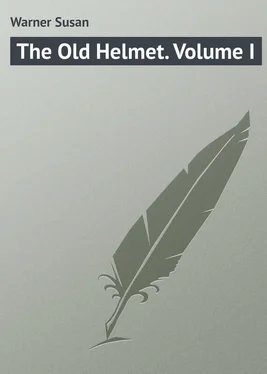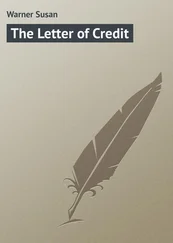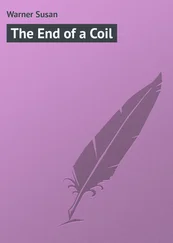Susan Warner - The Old Helmet. Volume I
Здесь есть возможность читать онлайн «Susan Warner - The Old Helmet. Volume I» — ознакомительный отрывок электронной книги совершенно бесплатно, а после прочтения отрывка купить полную версию. В некоторых случаях можно слушать аудио, скачать через торрент в формате fb2 и присутствует краткое содержание. Жанр: foreign_prose, foreign_language, на английском языке. Описание произведения, (предисловие) а так же отзывы посетителей доступны на портале библиотеки ЛибКат.
- Название:The Old Helmet. Volume I
- Автор:
- Жанр:
- Год:неизвестен
- ISBN:нет данных
- Рейтинг книги:4 / 5. Голосов: 1
-
Избранное:Добавить в избранное
- Отзывы:
-
Ваша оценка:
- 80
- 1
- 2
- 3
- 4
- 5
The Old Helmet. Volume I: краткое содержание, описание и аннотация
Предлагаем к чтению аннотацию, описание, краткое содержание или предисловие (зависит от того, что написал сам автор книги «The Old Helmet. Volume I»). Если вы не нашли необходимую информацию о книге — напишите в комментариях, мы постараемся отыскать её.
The Old Helmet. Volume I — читать онлайн ознакомительный отрывок
Ниже представлен текст книги, разбитый по страницам. Система сохранения места последней прочитанной страницы, позволяет с удобством читать онлайн бесплатно книгу «The Old Helmet. Volume I», без необходимости каждый раз заново искать на чём Вы остановились. Поставьте закладку, и сможете в любой момент перейти на страницу, на которой закончили чтение.
Интервал:
Закладка:
CHAPTER II.
AT THE GARDEN-DOOR
"To die – to sleep.
To sleep! perchance to dream; ay, there's the rub;
For in that sleep of death what dreams may come" —
The family at Ivy Lodge gathered round the tea-table with spirits rather whetted, apparently for both talking and eating. Certainly the one exercise had been intermitted for some hours; the other however had gone on without cessation. It went on still. The party was now reduced to the home party, with the addition of Miss Broadus; which lady, with her sister, was at home at Ivy Lodge, as she was everywhere else. Elderly, respectable and respected old ladies they were; and though they dealt in gossip, would not willingly have hurt a fly. They dealt in receipts and in jellies too; in fashions, and in many kindnesses, both received and given by all the neighbourhood. They were daughters of a former rector of the parish, and poor, and asked nobody to help them; which indeed they had no need to ask.
"You seemed to like your afternoon's acquaintance, papa?" said Eleanor.
"He is a fine fellow," said the squire. "He's a fine fellow. Knows something. My dear, he teaches a small school at Wiglands, I hear."
"Does he. I wonder who goes to it," said Mrs. Powle.
"I don't know," said the squire; "but I mean to send Alfred."
"My dear Mr. Powle! to such a school as that? Nobody can go to it but some of the farmers' children around – there is no one else."
"It won't hurt him, for a little while," said the squire. "I like the master, and that's of more importance than the children. Don't you worry."
"My dear Mr. Powle! But I never heard of such a thing in my life. I do not believe Dr. Cairnes will like it at all. He will think it very strange, your sending your boy to a man that is not a Churchman, and is not anything, that anybody knows of."
"Dr. Cairnes be hanged!" said the squire, – "and mind his own affairs.
He wouldn't want me to send Alfred to him ."
"My dear Mrs. Powle," said Miss Broadus, "I can tell you this for your comfort – there are two sons of Mr. Churchill, the Independent minister of Eastcombe – that come over to him; besides one or two more that are quite respectable."
"Why does not Mr. Churchill send his boys to school it Eastcombe?"
"O well, it doesn't suit him, I suppose; and like goes to like, you know, my dear."
"That is what I think," said Mrs. Powle, looking at her husband, – "and I wonder Mr. Powle does not think so too."
"If you mean me," said the squire, "I am not 'like' anybody – that I can tell you. A good schoolmaster is a good schoolmaster – I don't care what else he calls himself."
"And Mr. Rhys is a good schoolmaster, I have no doubt," said Miss Broadus.
"I know what he is," said Julia; "he is a nice man, I like him."
"I saw he kept you quiet," said Eleanor. "How did he manage it?"
"He didn't manage it. He told me about things," said Julia; "and he got flowers for me, and told me about ferns. You never saw such lovely ferns as we found; and you would not know where to look for them, either. I never saw such a nice man as Mr. Rhys in my life."
"There, my dear," said her mother, "do not encourage Julia in talking.
She is always too ready."
"I am going to walk with him again, to get flowers," said the child.
"I shall invite him to the Lodge," said the squire. "He is a very sensible man, and knows what he is about."
"Do you know anything more about him, Mr. Powle?"
"He does more than teach three or four boys," said Miss Broadus. "He serves a little Dissenting Chapel of some sort, over at Lily Vale."
"Why does he not live there then?" said Mrs. Powle. "Lily Vale is two and a half miles off. Not very convenient, I should think."
"I don't know, my dear. Perhaps he finds living cheap at Wiglands, and I am sure he may. Do you know, I get butter for less than one-half what I paid when I was in Leicester?"
"It is summer time now, Miss Broadus," said the squire.
"Yes, I know, but still – I am sure Wiglands is the nicest, easiest place for poor people to live, that ever was."
"Why you are not poor, Miss Broadus," said the squire.
Miss Broadus chuckled. The fact was, that the Miss Broadus's not being poor was a standing pleasant joke with them; it being well known that they were not largely supplied with means, but contrived to make a little do the apparent work of much more than they had. A way of achieving respectability upon which they prided themselves.
"Eleanor," said her mother as they left the table, "you look pale. Did you get your feet wet?"
"Yes, mamma – there was no helping that."
"Then you'll be laid up!"
"She must not, just now, my dear," said Miss Broadus smilingly.
Eleanor could not laugh off the prophecy, which an internal warning told her was well founded. She went to bed thinking of Mr. Rhys's helmet. She did not know why; she was not given to such thoughts; neither did she comprehend exactly what the helmet might be; yet now the thought came uneasily across her mind, that just such a cold as she had taken had been many a one's death; and with that came a strange feeling of unprotectedness – of want of defence. It was very uncomfortable to go to bed with that slight sensation of sore throat and feverishness, and to remember that the beginning of multitudes of last sicknesses had been no other and no greater; and it was most unlike Eleanor to have such a cause make her uncomfortable. She charged it upon the conversation of the morning, and supposed herself nervous or feverish; but this, if an explanation, was no cure; and through the frequent wakings of a disturbed night, the thought of that piece of armour which made one of her fellow creatures so blessedly calm, came up again and again to her mind.
"I am feverish – this is nightmare," said Eleanor to herself. But it must be good to have no such nightmare. And when the broad daylight had come, and she was pronounced to be very ill, and the doctor was sent for, Eleanor found her night's visions would not take their departure. She could not get up; she was a prisoner; would she ever be free?
She was very ill; the fever gained head; and the old doctor, who was a friend of the family, looked very grave at her. Eleanor saw it. She knew that a battle was to be fought between the powers of life and death; and the thought that no one could tell how the victory would be, came like an ice wind upon flowers. Her spirit shrank and cowered before it. Hopes and pleasures and plans, of which she was so full yesterday, were chilled to the ground; and across the cleared pathway of vision, what appeared? Eleanor would not look.
But the battle must be fought; and it had to be fought amid pain and fever and weariness and the anxious looks of friends; and it was not soon decided. And the wish for that helmet of shelter, whatever it might be, came at times bitterly strong over Eleanor's heart. Many a heavily drawn sigh, which her mother charged to the body's weariness, came from the mind's longing. And in the solitude of the night, when her breath was quick and her pulse was high and she knew everything was going wrong, the thought came with a sting of agony, – if there was such a helmet, and she could not have it. O to be well and strong, and need none! – or while lying before death's door to see if it would open, O to have that talisman that would make its opening peace! It was not at Eleanor's hand, and she did not know where to find it. And when the daylight came again, and the doctor looked grave, and her mother turned away the anxious face she did not wish Eleanor to read, the cold chill of fear crept over Eleanor's heart. She hid it there. No creature in the house, she knew, could meet or quiet it; if indeed her explanation of it could have been understood. She banished it as often as it was possible; but during many days that Eleanor lay on a sick bed, it was so frequent a visiter that her heart grew sore for its coming.
Читать дальшеИнтервал:
Закладка:
Похожие книги на «The Old Helmet. Volume I»
Представляем Вашему вниманию похожие книги на «The Old Helmet. Volume I» списком для выбора. Мы отобрали схожую по названию и смыслу литературу в надежде предоставить читателям больше вариантов отыскать новые, интересные, ещё непрочитанные произведения.
Обсуждение, отзывы о книге «The Old Helmet. Volume I» и просто собственные мнения читателей. Оставьте ваши комментарии, напишите, что Вы думаете о произведении, его смысле или главных героях. Укажите что конкретно понравилось, а что нет, и почему Вы так считаете.











